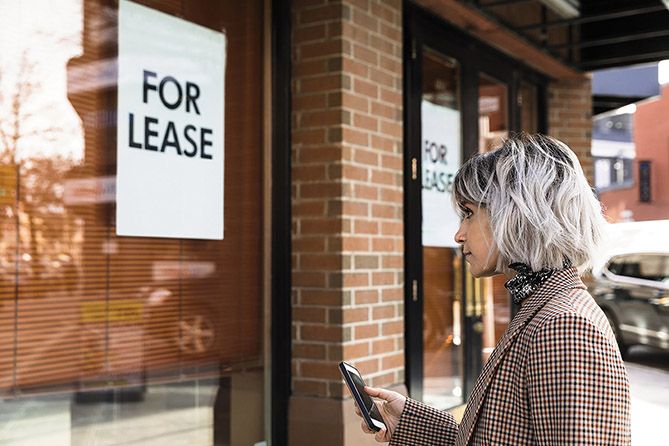With adult-use cannabis newly legal in New York, entrepreneurs and developers on the prowl for real estate are scooping up everything from a former prison site to greenhouses – and there are even plans for a sprawling “cannabis campus.”
It’s no wonder people want to get into the industry, given New York City’s position as the nation’s financial and commercial hub.
In addition, MJBizDaily projects that an adult-use market in New York will generate $2.3 billion in annual sales by its fourth full year.
Recreational sales are expected to begin next year.
In response, companies that already are in New York’s medical marijuana industry – many of them multistate operators (MSOs) – have been scouting locations and even purchasing facilities in anticipation of expanding into the adult-use market.
“You have a lot of the MSOs trying to gobble up real estate and get into position so they’re ready to go,” said Gregory Tannor, executive managing director and principal of New York-based real estate firm Lee & Associates.
“MSOs are in a great position because of medical and because of the money they have. They can lock up the real estate by a lock fee or starting to pay rent.”
Some also are building out existing facilities.
Chicago-based multistate operator PharmaCann plans to expand its 180,000-square-foot MMJ production facility in Hamptonburgh by an additional 75,000 square feet of growing space, according to the Middletown Times Herald-Record. The price tag is put at up to $40 million.
PharmaCann is one of 10 medical operators in New York.
If New York follows the lead of other states that require cannabis businesses to have real estate secured before issuing licenses, operators will need to have letters of intent, a draft lease or ownership of the property.
Tannor said the price of real estate hasn’t changed since adult-use cannabis legalization, but landlords are starting to understand what marijuana businesses can pay.
Even though the retail real estate market declined during the pandemic, landlords aren’t desperate and are not negotiating on price.
Prison gets a new use
Green Thumb Industries, another Chicago-based MSO, received financial incentives to build out a $50 million cultivation and processing facility at a former prison in Warwick, New York, that will create about 125 full-time jobs.
The incentives include a sales and use-tax exemption and a 15-year property tax abatement.
A news release noted that Green Thumb plans to purchase the remaining eight lots available – about 40 acres – at the Warwick Valley Office & Technology Corporate Park, as the development is called.
“Planting a flag at a former federal prison that used to incarcerate people for cannabis and will now employ people to grow cannabis is another example of the full-circle nature of this industry,” Green Thumb founder and CEO Ben Kovler said in a statement.
In South Buffalo, New York, developer Zephyr Partners is planning a “cannabis campus” that will cover more than 70 acres and is expected to bring up to 1,000 jobs to the city.
New York-based MSO Columbia Care recently paid Van de Wetering Greenhouses $42.5 million in cash and stock for a 34-acre cultivation site in eastern Long Island.
The property has about 740,000 square feet of operational greenhouse space and 200,000 square feet of grow capacity that will be used to cultivate cannabis for the company’s New York dispensaries and distribution channels.
The existing business – which involves growing ornamental flowers – will continue to operate as it scales back. Columbia Care will be able to scale up as space becomes available.
‘A no-brainer’
“It’s a large transaction, but it’s a no-brainer,” said Adam Goers, senior vice president of corporate affairs for Columbia Care. “To re-create this asset would have been super-time intensive as well as super-capital intensive.”
The company’s first harvest from the property, expected in the fourth quarter of 2021, will be sold to businesses in the state’s medical marijuana program.
The addition of adult use to New York’s marijuana program is expected to at least double the number of people who become MMJ patients, said Goers, adding that Columbia Care will participate in the adult-use market as soon as it’s open for business.
The bill that led to New York’s legal adult-use cannabis market also allowed for smokable whole flower in the medical program.
“With whole flower sales soon to begin and adult-use sales approximately 18 months away, this will be a huge boon for cannabis sales in the meantime,” Goers said.
“Just look to places like Florida and Pennsylvania – when they introduced smokable whole flower, their sales more than doubled in the next six months, and at the same time, more patients became registered, thus the market grew even more.”
In addition to supplying Columbia Care’s four medical dispensaries in New York, the cultivation facility will provide marijuana to new recreational retailers that are just getting off the ground, Goers said.
“As these rules come out, Columbia Care will be in a good position with an already-developed greenhouse to take advantage of that,” Goers added.
“It offers a lot of ability for us to also be a ready asset for social equity applicants that will make up a huge component of New York licensing. Social equity New Yorkers don’t have large-scale cultivation practices to get those folks up and running.”
Columbia Care plans to add adult-use products to three of its existing four dispensaries as well open an additional four locations to serve medical patients.
While Columbia Care is scouting the city for real estate in underserved communities, it has not committed to any sales or leases, Goers said.
“It’s a long process to know what’s in the marketplace,” he said. “Until the regulations are finalized, a prudent company isn’t going to make any super-speculative decisions.”
Rules a work in progress
While many states require cannabis businesses to secure their real estate ahead of time before granting a license, New York has not yet determined whether it will follow suit.
New York cannabis industry executives would like the state to forgo such a requirement.
“If you don’t require real estate, that will allow for a level playing field,” Goers said. “If real estate is required, pricing becomes super-exorbitant.”
Goers said he would characterize the real estate market as being in flux. Because of the vacancies that resulted from COVID-19, inventory is higher than usual, but it still hasn’t done much to open up availability for cannabis-compliant retail.
“Landlords who have compliant real estate are holding on to it or, at the very least, ensuring they’re getting a big premium now to go with a non-cannabis use because they hope to have a potential windfall in the future,” Goers said.
“Marquee locations in the city are particularly hopeful that they will be able to site a cannabis dispensary at some point.”
While opening retail stores for purchase of recreational cannabis is still months away, it’s not too soon for entrepreneurs wanting to get into the industry to start looking for real estate – particularly given that the state could require business owners to secure real estate beforehand.
“It’s the No. 1 challenge of getting into the cannabis space,” said Ryan George, founder of 420 Property, a Sacramento, California-based cannabis real estate marketplace.
“You need to have a location secured either by a lease option or an option to purchase or an executed lease before you even apply for the license. I’m not sure if New York will go that way, but almost every state across the country does that.”
It’s not just New York that’s seeing a rise in demand for warehouses, land and storefronts that that can be used for marijuana businesses, according to a new report from the National Association of Realtors (NAR).
And not all landlords are comfortable with leasing to cannabis businesses, which is fueling an increase in cannabis businesses favoring buying real estate versus leasing it.
“Many property managers will lease to marijuana companies, but about 80% will not lease to marijuana-related businesses,” said Jessica Lautz, president of demographics and behavioral insights for NAR.







